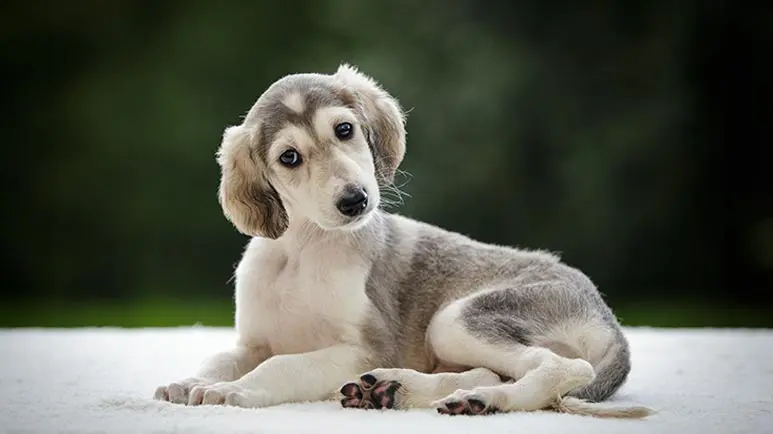Which Dogs Have a Secret Feline Side?
Discover the fascinating world of nine unique dog breeds that defy expectations by embracing feline-like traits. These captivating canines blur the line between loyalty and independence, offering a surprising twist on companionship that will change how you view man's best friend.

STORY AT-A-GLANCE
- If you’re a cat person looking to add a canine member to your pack, there are certain breeds that may fit the bill better than others
- Salukis are sighthounds known for their independent, almost aloof nature
- Shiba Inus can be reserved around strangers and often enjoy having some alone time, much like cats
- Basenji are quiet and can be aloof with strangers, showing a selective affection similar to feline behavior
- Shar-peis can be content spending time alone and often have a calm demeanor, much like cats
Are you a self-proclaimed cat person? If so, you probably value your kitty’s independence, intelligence, cleanliness and stealth over a dog’s tendency to be friendly, affectionate and loyal. Truth be told, while cats are often portrayed as aloof, research shows they form attachment bonds with their caregivers, such that “we may be underestimating cats’ socio-cognitive abilities.”1
So even cat people may appreciate the companionship of their feline buddy, much like dog owners often regard their pets as faithful companions. Further, every animal is unique, and you may have experienced a cat that acts like a dog — and vice versa.
Still, if you’re a cat person who finds yourself looking to add a canine member to your pack, there are certain breeds that may fit the bill better than others.2
9 Dog Breeds That Act More Like Cats
- Saluki — Salukis are sighthounds known for their independent nature. Bred for their speed and keen hunting abilities, salukis were used by Arab tribesman for hunting gazelle. Since they run much faster than humans — 30 to 35 miles per hour (mph) and, by some accounts, up to nearly 50 mph — they have independent personalities.
“Although they are devoted to their owners, they are also independent souls who can be aloof and cat-like,” according to the American Kennel Club (AKC).3 - Shiba Inu — This Japanese breed is known for its independence, cleanliness and cat-like agility. Shiba Inus can be reserved around strangers and often enjoy having some alone time, much like cats.
“Daring, courageous and extremely pleasant to be around, the Shiba Inu is catlike in more than just his temperament,” Gina DiNardo, executive secretary of the AKC, told PetMD. “He enjoys keeping himself clean and groomed, and you’ll often catch this pup meticulously licking himself like his kitty friends do.”4 - Basenji — Known as Africa’s "barkless dog," the Basenji is an independent breed that often cleans itself much like cats do. They are quiet and can be aloof with strangers, showing a selective affection similar to feline behavior.
AKC describe Basenjis as “catlike canines,” noting, “Yes, it's true, they don't bark, but they make their feelings known with an odd sound described as something between a chortle and a yodel. Basenjis are fastidious and will groom themselves like cats.”5 - Papillon — Known for their intelligence and independent nature, Papillons can be selective in their social interactions. They also have an agile and playful side, often enjoying high perches like cats.
“Papillons are extremely friendly with children and adults alike. However, this breed needs training to be socialized in a proper way,” DiNardo told PetMD. “These canines are as intelligent as cats. In addition, this dog breed is highly self-assured and confident as well.”6 - Shar-Pei — Known as serene dogs that are independent and suspicious of strangers, shar-peis can be reserved and selective about showing affection, similar to how cats choose when and with whom to be affectionate. Shar-peis can also be content spending time alone and often have a calm demeanor, much like cats.
- Pomeranian — Pomeranians, despite their fluffy appearance, can exhibit cat-like behaviors such as being selective with their affection and displaying a certain level of independence and curiosity. Plus, coming in at a weight of around seven pounds, these tiny pups are about the same size as an average cat.
- Whippet — Whippets have a strong prey drive and love to run, but they’re also content to relax for hours and rarely bark, making them serene, similar to cats. A whippet will often seek out the softest, warmest place in your home to curl up in — if your cat didn’t find it first.
Also like cats, whippets are known for being clean animals. They groom themselves and have very little body odor. “Whippets and cats share a strong prey drive,” DiNardo told PetMD. “They both go nuts hunting down smaller animals. Finally, when their exercise needs are met, whippets tend to be lazy around the house. Like cats, they love to lounge in warm spaces.”7 - Tibetan Spaniel — Tibetan spaniels are known for their independence, intelligence and tendency to perch on high places to observe their surroundings, much like a cat would. Further, according to the AKC, “They have a very independent mind … and will decide if and when they will do what is asked of them”8 — something all cat owners can relate to.
- Japanese Chin — This breed is known for its cat-like agility and the ability to climb. They are also independent and can be selective in showing affection. However, as AKC explains:9
“Bred strictly as companions for royalty, the Chin's only job throughout the breed's history has been to charm, amuse, and comfort their humans. They are often referred to as 'catlike,' and this trait can certainly be visible during training. They react well to positive training methods, but will shut down at the first hint of harshness.”
Looking for a cat-like dog to add to your family? Your local animal shelter is filled with dogs of all different sizes and personality traits. The volunteers are usually well-informed about each dog’s character, so simply let them know what you’re looking for so they can match you with the perfect dog — or cat — for your lifestyle.











